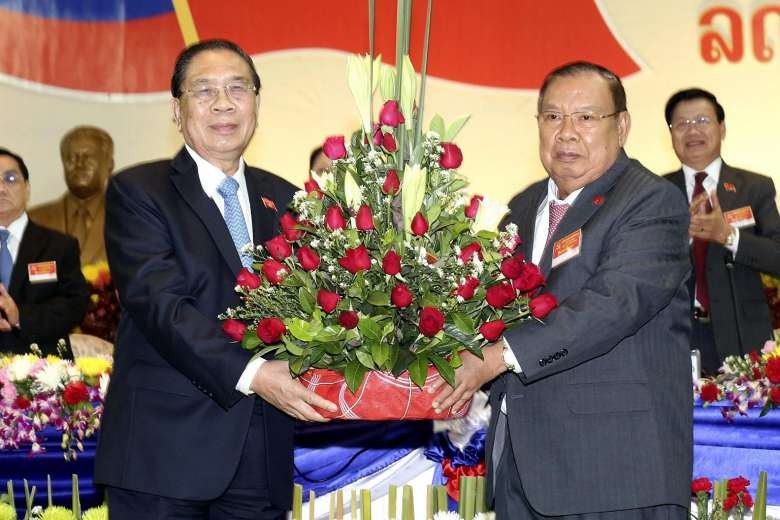Laos, one of last communist nations, elects new leaders
Change Size
 Outgoing party general secretary and Laos President Choummaly Sayasone (left) greets Vice-President and Communist Party leader Bounnhang Vorachit. (EPA via The Straits Times/-)
Outgoing party general secretary and Laos President Choummaly Sayasone (left) greets Vice-President and Communist Party leader Bounnhang Vorachit. (EPA via The Straits Times/-)
L
aos, one of the world's last communist nations, elected its top government leaders Wednesday at a meeting of its newly seated National Assembly.
State-run news agency KPL reported that the 149-member assembly voted to endorse the selections made by the ruling Communist Party at its Congress in January, where then-Vice President Bounnhang Vorachit was selected as its new secretary general.
The 78-year-old Bounnhang was elected president of the single-party state, while 70-year-old former Deputy Prime Minister and Foreign Minister Thongloun Sisoulith was made prime minister. Thongloun also appointed 18 Cabinet ministers.
Elections are held every five years.
Laos, a poor, landlocked country with a population of just 7 million, will have a higher-than-usual profile this year as it has its turn holding the annual chairmanship of the Association of Southeast Asian Nations as the organization grapples with territorial disputes with China in the South China Sea. The US State Department and independent agencies criticize the secretive regime for its poor human rights record.
"The most significant human rights problem continued to be that the government denied citizens the ability to choose their government," said the State Department's recently released annual report on human rights practices.
"Other human rights problems continued to include: abusive prison conditions; lack of due process, including arbitrary arrest and detention; government infringements on freedoms of speech, press, assembly, and association, as well as on the right to privacy; government restrictions on academic freedom; local restrictions on religious freedom; trafficking in persons; societal discrimination based on sexual orientation and against persons with HIV/AIDS; and restrictions on workers' rights."






